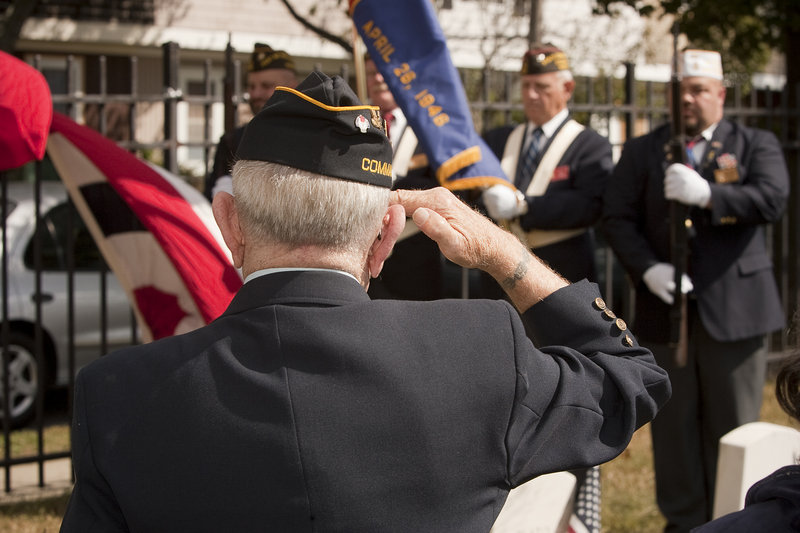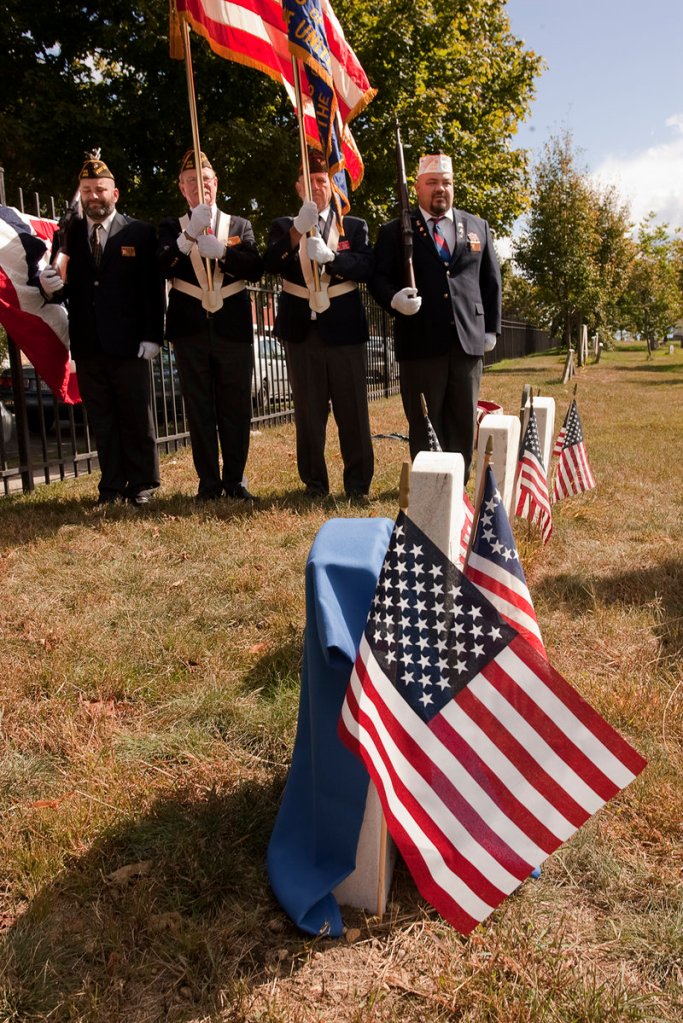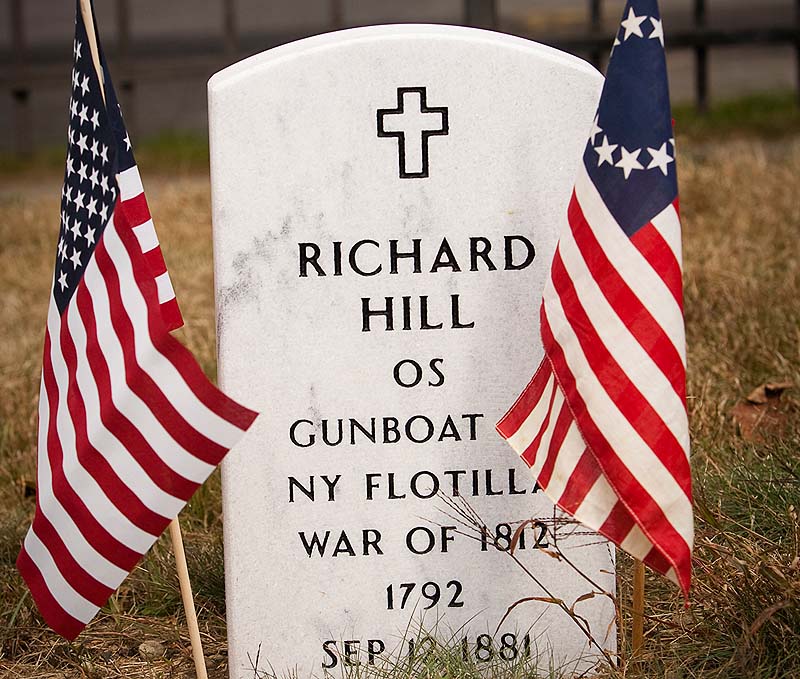PORTLAND – Taps was finally played for Richard Hill on Saturday.
Hill, an African-American veteran of the War of 1812, received military honors and a veteran’s headstone at a brief ceremony in the so-called Colored Ground in Eastern Cemetery, 151 years after his death.
Hill is believed to have witnessed the British attack on Fort McHenry in Baltimore on Sept. 14, 1814, the battle that inspired Francis Scott Key to write the “The Star-Spangled Banner,” which would become the national anthem.
Hill and his gravesite were forgotten after his death in 1861 at the hands of his son, who murdered him outside their home on Munjoy Hill. Unfortunately, his new stone is inscribed with 1881 as the year of his death — 20 years after his demise.
That his story is being told at all is due partly to the diligence of Larry Glatz of South Portland, who rediscovered Hill during his research on Mainers who fought with federal troops against the British in the War of 1812.
The military honors were provided by the Harold T. Andrews American Legion Post 17 of Portland and the Veterans of Foreign Wars Post 6859 of Portland.
Hill’s new stone, paid for by the federal government, stands beside the graves of Portland’s black American Revolutionary War veterans at Congress and Mountfort streets.
Glatz said that while 20,000 Mainers in the state militia were called up to defend Portland in 1814, another 5,000 Mainers fought as federal troops in the three-year war.
“Most of the federal troops were buried in unmarked graves,” Glatz said.
A desire to mark the graves of 1812 veterans sparked his research. Several other 1812 graves have also been identified at Eastern Cemetery.
Historian Herb Adams of Portland managed to find several historical documents that shed light on Hill’s life, including newspaper accounts of Hill’s death.
“This is probably the first time he has been mentioned” since then, Adams said.
Adams said Hill was born about 1792, but it is unclear whether he was born in Portland or moved to the city later. Records show that during the War of 1812, Hill served on U.S. Gunboat 47 with the New York Flotilla.
“The U.S. Navy was not segregated then, and it may have been the first time in his life Hill was on equal footing with his co-workers,” Adams said.
His gunboat was probably in Balitmore Harbor on Sept. 14, 1814, when the British Navy unsuccessfully bombarded Fort McHenry and inspired the words that we sing to this day.
“Both Hill and Key witnessed one of the iconic moments of U.S. history,” Adams said.
Otherwise, the men’s lives were vastly different.
Hill returned to Portland to work as a common laborer. He was one of the city’s 400 black residents who lived in the neighborhoods at the foot of Munjoy Hill. At one point, Hill applied for and obtained 160 acres of government land in the Ohio hills as an 1812 veteran. Adams said Hill probably sold it for a fraction of its value.
“That was his only veteran’s benefit,” Adams said.
Hill was father to a troubled son, Richard L. Hill, who robbed a boot store as a teenager. At the time, prominent Portlanders unsuccessfully petitioned for a repeal of his sentence.
After he was released, the younger Hill killed his father by shooting him with double pistols.
June McKenzie of Portland, whose African-American roots go back generations in the city, said she was happy to help unveil Hill’s new grave marker.
“It is about time he gets some recognition. He served well and still had a hard life,” McKenzie said.
She said it is important to tell the stories of people like Hill.
“It shows the kids the past was not all about slavery,” McKenzie said.
Staff Writer Beth Quimby can be contacted at 791-6363 or at:
bquimby@pressherald.com
Send questions/comments to the editors.






Success. Please wait for the page to reload. If the page does not reload within 5 seconds, please refresh the page.
Enter your email and password to access comments.
Hi, to comment on stories you must . This profile is in addition to your subscription and website login.
Already have a commenting profile? .
Invalid username/password.
Please check your email to confirm and complete your registration.
Only subscribers are eligible to post comments. Please subscribe or login first for digital access. Here’s why.
Use the form below to reset your password. When you've submitted your account email, we will send an email with a reset code.